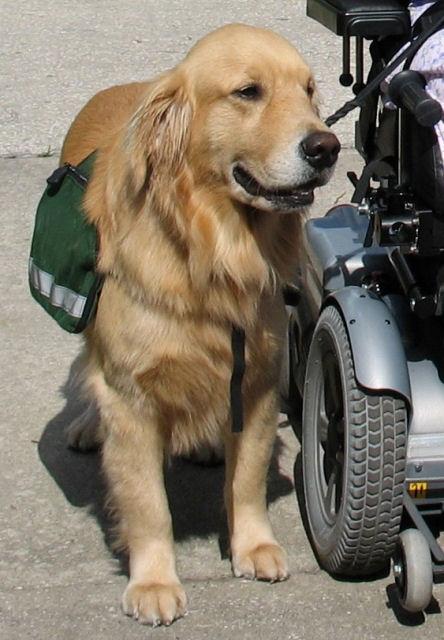 I recently heard a story about someone who registered her pet dog as a service dog so he could fly in the cabin with her for free. That person did not have a disability, nor had the dog been specially trained to perform some task to assist with a disability. I wondered not only how someone could be so unethical, irresponsible, and dishonest, but how they could legally get away with it.
I recently heard a story about someone who registered her pet dog as a service dog so he could fly in the cabin with her for free. That person did not have a disability, nor had the dog been specially trained to perform some task to assist with a disability. I wondered not only how someone could be so unethical, irresponsible, and dishonest, but how they could legally get away with it.
After a few hours of Internet research, I had an answer. Basically, there are no national requirements for service dog certification, licensing, training, or identification. Most states have laws about the rights of people with service dogs to take their dogs into public places and on public transportation. No states require any type of registration, certification, or identification of service dogs. A handful of states (not Maryland) have legal penalties for falsely claiming a dog is a service dog. If someone takes a dog into a pubic establishment and claims it is a service dog, the only questions the owner or employees can legally ask that person is whether or not they have a disability (they may not ask what that disability is), and what service the dog has been trained to provide. A person faking a service dog is only likely to be caught if the dog creates a problem and police or legal actions are involved. In that case the faker may be asked to swear under oath that they have a disability and that the dog has been specially trained to perform a service to assist with that disability.Lying under oath is felony perjury, usually punishable by jail time. If the faker admits to lying, and some type of monetary gain was achieved by lying (like a free ride on a plane for the dog), fraud charges of some type may be brought against them.
Spurred on by the lack of standard certification and identification requirements, and by the glaring legal loopholes, a whole unethical internet industry selling fake service dog credentials has sprung up, supported by an unethical base of customers. Yes, I would love to have my dog ride on trains, planes, and buses with me, and go into stores with me, but I would never lie to achieve that. Doing so might undermine the public perception and acceptance of valid service dogs and the disabled persons who truly need those dogs to assist them.
Many thousands of hours and dollars are spent training real service dogs, to achieve a dog with reliable and impeccable public behavior. Even the best-trained pet dogs are likely to fall far short of service dog behavior standards. People with real service dogs know that there are no identification or registration requirements. If you see someone flaunting a certificate or ID to prove their dog is a service dog, odds are they are faking it. People who lie about their dog being a service dog are worse than non-handicapped people who park in handicapped spots to get a good space and save a few steps.
..



Write a Letter to the Editor on this Article
We encourage readers to offer their point of view on this article by submitting the following form. Editing is sometimes necessary and is done at the discretion of the editorial staff.